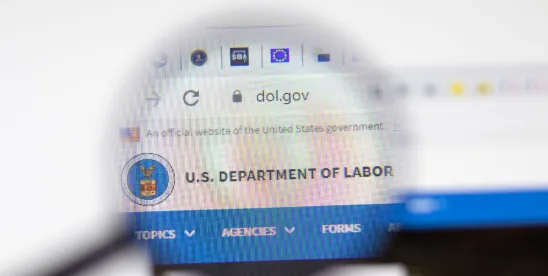In April 2024, the Department of Labor published its final rule regarding salary thresholds applicable to the most commonly used overtime exemptions. As a result, on July 1, the first of the mandatory threshold increases went into effect and raised the annual salary threshold for exempt employees to $43,888 for employees subject to the executive, administrative, and professional exemptions and to $132,964 for those subject to the highly compensated employee exemption.
On Jan. 1, 2025, subsequent changes will further increase these thresholds to $58,656 and $151,164, respectively.
Since the rule's publication, a number of legal challenges have been raised seeking to put a halt to its enforcement. To date, none of these challenges has succeeded in staying enforcement of the rule or otherwise preventing it from going into effect and affecting employers nationwide. As the summer comes to a close and businesses begin looking toward next year, let's take a look at where these challenges stand..
Texas Challenges
Perhaps the most prominent challenge to the rule is a pair of lawsuits that have been consolidated in Texas federal courts. The first, State of Texas v. U.S. Dep’t of Labor, initially succeeded in staying the rule's enforcement as it applies to individuals employed by the Texas government. The second lawsuit, Plano Chamber of Commerce v. U.S. Dep’t of Labor,was brought “on behalf” of businesses nationwide to challenge the Department of Labor's ability to promulgate the new rule.
The two lawsuits have now been consolidated and are before the same court that shot down the Department of Labor's‘ prior attempt at enforcing a similar rule in 2016. That case, Nevada v. U.S. Dep't of Labor, prohibited the agency from increasing salary thresholds to a level that “essentially make[s] an employee's duties, functions, or tasks” (the other major component of the exemption tests) “irrelevant if the employee's salary falls below the new minimum salary level.”
The plaintiffs in Texas now make the same argument and claim the agency's new rule is in plain violation of the court's 2016 ruling. The lawsuit has garnered the attention of numerous amici briefs in the form of businesses, interest groups, and other states' governments.
Of note, these Texas lawsuits are among the first to challenge the Department of Labor's rulemaking authority under the recent U.S. Supreme Court decision in Loper Bright Enters. v. Raimondo. Loper Bright substantially reduced the authority of administrative agencies and enables challenges to such rules where 1) the underlying statute does not specifically authorize the agency to address the conduct at issue, 2) the conduct at issue derives from an agency-promulgated rule, 3) that rule has not been challenged in court, or if it has been challenged and upheld, it was upheld on the grounds of agency deference under the now extant Chevron doctrine. Such arguments are now being made in regard to the Department of Labor's salary threshold increase.
Public Interest Challenges
In addition to the primary battleground in Texas, public interest firms and groups have filed lawsuits challenging the rule in other venues and seeking to stay the rule's enforcement nationwide. One such lawsuit was filed by a public interest law firm on behalf of a small business, Flint Avenue, LLC v. U.S. Dep’t of Labor. There, the court held that the plaintiff lacked standing for a nationwide injunction, as only one employee was possibly affected by the July increase and that the court would reach a decision on the merits by Jan. 1, 2025, before other plaintiffs would be implicated.
In addition, last week a similar lawsuit, Ass’n of Christian Schools Int’l v. U.S. Dep’t of Labor, was filed by Beacon Center in the Middle District of Tennessee on behalf of the Association of Christian Schools International. All of these lawsuits make similar arguments to support the position that the department has overreached in its increase to the salary threshold.
Broader Challenges to the DOL's Authority
An older lawsuit also has been implicated by the new rule. Mayfield v. U.S. Dep’t of Labor challenges the Department of Labor's authority to set any salary threshold and that such a test is an unconstitutional designation of legislative powers. Although these arguments failed at District Court level, the case is now before the U.S. Court of Appeals for the Fifth Circuit, which held oral arguments in early August.
Next Steps
Any (or all) of these lawsuits could lead to the salary threshold rule being stayed prior to the January 1 increases. However, since we are unable to predict the future, we cannot predict what the outcome of these cases is likely to be. While prior decisions in 2016 could suggest that a stay is likely, much has changed in the political and legal landscape since that time, and it is too early to say with complete confidence what the outcome will be.
However, at least some courts have indicated that a decision is likely to be reached prior to the January 1 increases and more clear guidance will be available as the cases further develop. Until such time, businesses should begin assessing their potential exposure to the January 1 increases and consider whether a full classification audit, the most thorough approach, is necessary.
It is also in businesses' best interests to begin working with their legal teams to develop a plan on how to address any currently exempt employees whose salary falls below the January thresholds. Numerous options are available to address these changes, from salary increases and the reclassification of certain employees to complete overhauls of compensation systems. There is no “one size fits all” solution to the salary threshold increases and how to manage them.




 />i
/>i

